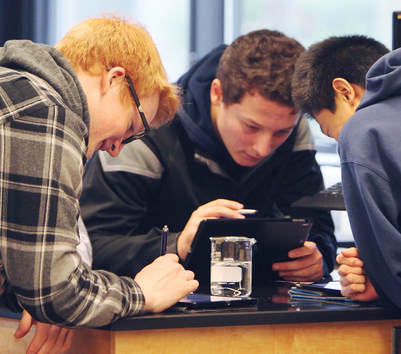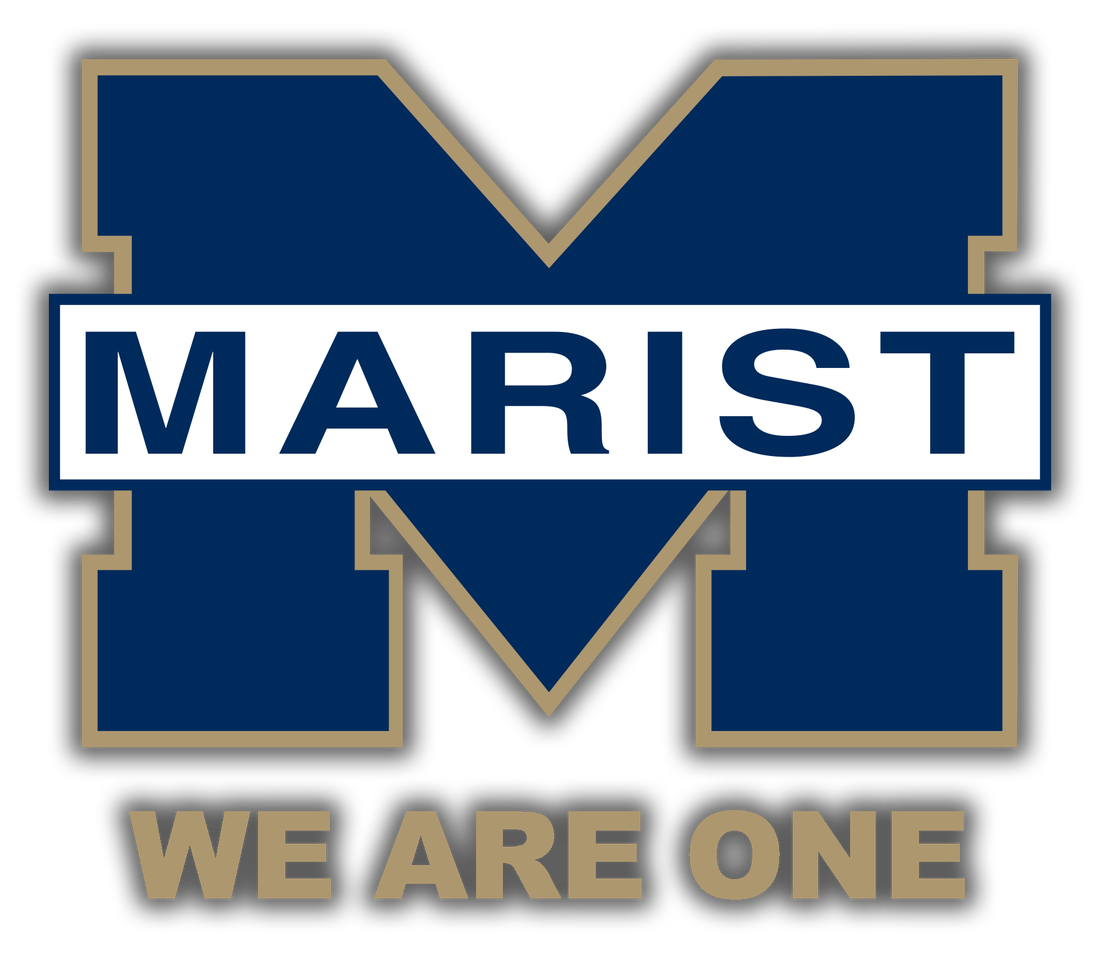1:1 Technology FAQ
|
1:1 Technology Presentation
Download PDF of Slideshow 
What does 1:1 Technology Integration mean?
1:1 means every student will have a personal computer (iPad) to improve opportunities for learning through increased access to information and increased personal engagement. Why is Marist providing an iPad to each student? We are committed to preparing students for college and life beyond high school in an increasingly technological world.
Why has Marist chosen the iPad?
Who will own the iPad? Marist will own the iPad. Each student will be issued a 64GB, Wi-Fi only, full-sized iPad with Retina Display. (Also known as the iPad Air 2.) How will the cost of the 1:1 program be paid for and what costs are covered? We believe a modest tuition increase is the most transparent, efficient, and responsible way of covering the costs of the entire program. The 1:1 program costs include:
What if we already own an iPad or prefer another device?
What about textbooks and applications (apps)? Marist is committed to using the best resources at the most reasonable cost possible. When available, less expensive electronic textbooks and resources will be options for families to purchase.
How will teachers use the iPad in their classes? The iPad enhances and allows for more effective ways of conducting traditional academics (reading, writing, note taking). Teachers will also be able to engage students in new and exciting ways to create a 21st century learning environment.
The iPad will be used to access information beyond the walls of the classroom, enabling students and teachers to:
How will students receive and be trained to use their iPads? iPad deployment and student training will be provided in late August 2015, before the school year begins. Multiple training dates will be available to accommodate schedules and allow for some flexibility.
What about iPad accessories and cases? Students will be required to provide a case for their Generation 6 iPad.
What happens if the iPad is broken, lost, or stolen? The iPads are insured under the school’s policy, and we will make every effort to repair a damaged iPad under that insurance with a small deductible charged to the family.
How will Marist address student safety and distractions? A combination of well-developed policies, clear and consistent communication, and ongoing partnership with families grounded in a respect for the power and potential for technology are how we plan to address the real and valid concerns associated with technology.
How will the quality of a Marist education be enhanced? As professional educators, Marist teachers know that sometimes it makes sense to put pen to paper or turn the pages of a book, whether those are paper pages or electronic pages. At times it is important to lead discussion and other times it is equally valuable to just listen. And sometimes it's essential to use an iPad to find the best answers, synthesize a volume of information and create something vibrant and dynamic. |
